NDNA News
of 7
Maths confidence soars as three early years settings complete NDNA’s Maths Champions programme
This festive season, NDNA’s Maths Champions programme has been delighted to see early years setti…
Read more 
What are the changes to Government guidance and what is NDNA doing to support members?
The Department for Education has published new guidance which comes into force from April. Howeve…
Read more 
Government research shows school-based nurseries are not delivering flexible provision to its communities
Government research shows school-based nurseries are not delivering flexible provision to its com…
Read more 
One in seven childcare professionals paid around minimum wages
The Low Pay Commission – the body which recommends minimum statutory wage rates to the Government…
Read more 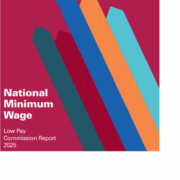
Local authorities to propose school-based nurseries for phase three
The DfE has today (Wednesday 4 February) published guidance for submitting proposals for its thir…
Read more 
Purnima Tanuku CBE to leave NDNA following over 20 years’ leading the organisation
Purnima Tanuku CBE to leave NDNA after over 20 years
Read more 
IFS: This year’s funding rates 22% lower in real terms than in 2017
The Institute for Fiscal Studies (IFS) annual report on education spending in England shows how s…
Read more 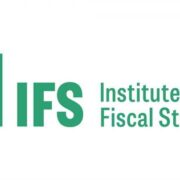
Early Years Maths activities that build confidence
At NDNA, we are proud to deliver the national Maths Champions Programme, a research-informed init…
Read more 
Early years recognised across the New Year Honours list
Early years professionals have been celebrated in the New Year Honours list.
Read more 
Maths Champions: Festive Early Years Maths Success
This festive season, NDNA’s Maths Champions programme has been delighted to see early years setti…
Read more 
Above inflation funding rates announced for 2026-27
The Government has published its new hourly funding rates for the funded early education and chil…
Read more 
Ofsted new framework: when councils could withdraw funding
With the new Ofsted inspection framework in place from 10 November, NDNA has been asking the Depa…
Read more 
Latest provider survey shows importance of PVI providers
New figures from the government’s survey show how significant PVIs are in delivering early educat…
Read more 
Scottish MSPs raise concerns over 1140 hours and PVI sustainability
Last week’s Education and Skills Portfolio Questions in the Scottish Parliament brought forward t…
Read more 
NDNA safeguarding update: What the Chan case means for providers
The recent case of child sexual abuse within a nursery setting has sent shockwaves across the nat…
Read more 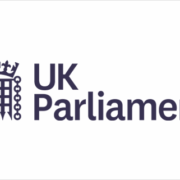
Ofsted annual report: Childcare deserts and more babies in nurseries
The latest Ofsted annual report has been released, with Sir Martyn Oliver setting out that suppor…
Read more 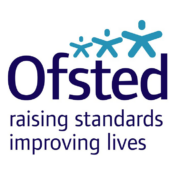
EYFS results: Children overall making better progress
More children are at the expected level of development and also more are making good progress, ac…
Read more 
Budget 2025: measures to reduce child poverty but little for nursery businesses
The Chancellor announced her Budget measures today which included an end to the two child benefit…
Read more 
Nurseries need funding boosted to pay statutory wage rises from April
The Chancellor announced increases to the National Living and Minimum Wages on Tuesday 25 Novembe…
Read more 
What nurseries need to know about DBS checks
When it comes to early years, keeping the children in your establishment safe is critical. That’s…
Read more 
Numbers of PVI nurseries increase for the second year running
Numbers of PVI nurseries increase for the second year running
According to the latest Ofsted sta…
Read more 
Former Chair of Trustees, Sarah Steel, receives OBE on her birthday
Wednesday 12 November marked a double celebration for Sarah Steel as she attended her investiture…
Read more 
Government Pulse survey shows most nursery costs higher than income
The latest Government Pulse survey of providers from 2024-25 showed that nurseries are still unde…
Read more 
Real Living Wage to rise by almost 7% from April
The Real Living Wage (RLW) is set to rise from April 2026 by almost 7%, increasing to £13.45 per …
Read more 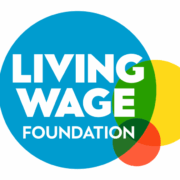
Big increase in percentage of children attending private nurseries in Scotland
New research published today (7 October) showed that more families in Scotland were choosing to s…
Read more 
Congratulations to Nursery World award winners
Many NDNA members were honoured at the annual Nursery World awards at the Brewery in London on Sa…
Read more 
NDNA Response to the Kido Nurseries cyber attack
NDNA respond to Kido Nursery cyber attack
Read more 
Scotland’s Childcare Guarantee calls for expanded funded hours
Pregnant Then Screwed Scotland has launched a new campaign: Scotland’s Childcare Guarantee. The c…
Read more 
Olivia Bailey and Josh MacAlister appointed as new education ministers
Olivia Bailey and Josh MacAlister have been appointed as the new junior education ministers
Read more 

Government must learn from first round of school-based nursery funding
Government must learn from first round of school-based nursery funding
Read more 
More than £65 million for childcare expansion not reaching providers
We have been approached by a number of nurseries where parents have had their Universal Credit Ch…
Read more 

